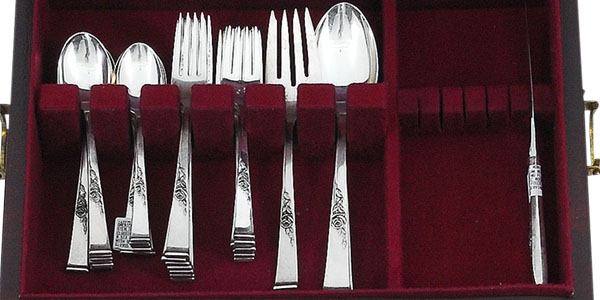Reed & Barton dates back to the founding of a jewelry store in 1822 in Tauton, Mass. founded by Isaac Babbit. In 1824, they created Brittania Metal, a combination of tin, antimony and copper, making a material more lustrous and white than pewter. When Babbit gained popularity with his craftsmanship and quality, two designers partnered with the business, Henry Reed and Charles Barton. Reed & Barton bought the company from Babbit in 1834. They began producing silver plated flatware. In 1859, when silver became readily available, they became sterling flatware producers. Their focus on sterling patterns in hollowware and flatware, such as Francis I pattern, led them to great success as an American sterling producer. In 1996, Reed & Barton was chosen as the designer and creator of all of the medals awarded for the Olympics in Atlanta. Reed & Barton is known as the oldest independently owned American producer of sterling flatware.

